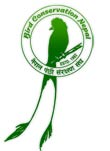environment jobs Est. in 1994. Delivering Environment Jobs for 30 years
This job listing is no longer active.
Please use our Environment Jobs Search to find current vacancies.
| Title | Call for Expression of Interest - "Vultures in TAL area, Nepal" |
| Posted |
|
|
|||||||||||||||||||||||||
| Description |
Call for Expression of Interest - "Vultures in TAL area, Nepal"
Assess food sources/carcass availability and carcass disposal mechanism for vultures in TAL area Nepal Consultancy Terms of Reference Bird Conservation Nepal is seeking consultancy services as part of the project: ‘Integrating vulture safe zones with wider landscape-level conservation to save Critically Endangered vultures in Nepal’ Project Background Established in 1982, Bird Conservation Nepal (BCN) is the project lead organisation in Nepal, focusing on the conservation of birds, their habitats and sites. BCN seeks to promote interest in birds among the general public, encourage research on birds and identify major threats to birds' continued survival. Vultures exhibit crucial ecological role and are regarded askey species for ecosystem services. They fed on carcass and play an important part of terrestrial food chain. About 23 species of vultures are known and nine of them are found in Nepal. Among them five are critically endangered species. It was reported that more than 90% of population of white-rumped vulture and slender-billed vulture are declining in lowlands of Nepal. The major cause behind this rampant decline is ascribed to diclofenac, a veterinary drug that causes renal failure in birds. Diclofenac is an anti-inflammatory and analgesic drug used to treat pain and wounds of livestock in Nepal. A ban on the production and importation of diclofenac started in Nepal in 2006; since then, use of the drug has declined by 90% but its complete eradication from the scavenger food chain has not yet been achieved. Community-managed Vulture Safe Feeding Site (VSFS) were first established in 2007 in Nawalparasi district of Terai. To advocate enforcement of diclofenac ban and maintain a captive population of vultures, Bird Conservation Nepal initiated a pioneer idea of community engagement to establish a Vulture Safe Zone (VSZ) since 2009. The Hariyo Ban Program, funded by USAID and implemented by a consortium of WWF, CARE, NTNC and FECOFUN with WWF as the lead, aims to reduce adverse impacts of climate change and threats to biodiversity in Nepal. It works on three core interwoven components biodiversity conservation, sustainable landscapes and climate change adaptation with livelihoods, gender and social inclusion being important cross cutting themes. The Hariyo Ban Program is being implemented in two priority landscapes of Nepal with high biodiversity; Terai Arc Landscape (TAL) and Chitwan-Annapurna Landscape (CHAL), complemented by policy support at the national level. VSZs have expanded to include all of western Nepal and select districts in the east and the TAL. However, Bara, Parsa and Rautahat districts of TAL Nepal have not yet been declared VSZs, which is hindering landscape-level vulture conservation in Nepal; therefore this subaward seeks to incorporate these districts to render the entire TAL diclofenac-free. The subaward aims to develop landscape-level vulture conservation, enhance community engagement in vulture conservation, and strengthen linkages between local communities and the private sector to ensure the long-term sustainability of vulture conservation efforts in Nepal. In the technical support of International Union for Conservation of Nature (IUCN), Bird Conservation Nepal (BCN) will be carrying out this activity. This subaward will be the milestone for the restoration of Nepal’s vulture population and helps to declare the entire TAL area diclofenac free zone.
Scope of consultancy The consultant is expected to work under the supervision of BCN, who is responsible for monitoring the progress of project activities. The purpose of this consultancy is an assessment study on food availability for vultures and carcass disposal mechanisms in TAL area covering districts from Rautahat to Kanchanpur. This assessment will utilize community level consultations, district level consultations and interviews, Key informant interviews as an assessment tools.
Expected Outputs The main output of the consultancy will be preparation of an assessment report on vulture food sources and carcass availability and disposal mechanism in TAL area. The detail report with data analysis should be submitted by the 31st December 2015. Interim outputs will include:
Study Duration The duration of the study will be from 1st August, 2015 to 15th December, 2015. Required qualification/experience
Cost Estimate and Payment The total estimated remuneration of the consultant is NRs. 1,57,000, which will be made in two installments. First installment of 60% will be made after submission of draft report and 40% final installment payment after completing the assignment and come up with final report. Final installment payment will be made after the Technical clearance of the outputs/Report from the BCN staff, who is responsible for this project. Application Interested individual consultants/consulting firms should submit their application to hrd@birdlifenepal.org or at the office of BCN, Lazimpat, Kathmandu no later than 31 July 2015. Applicant should also provide CV along with the application. |
